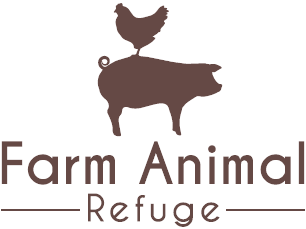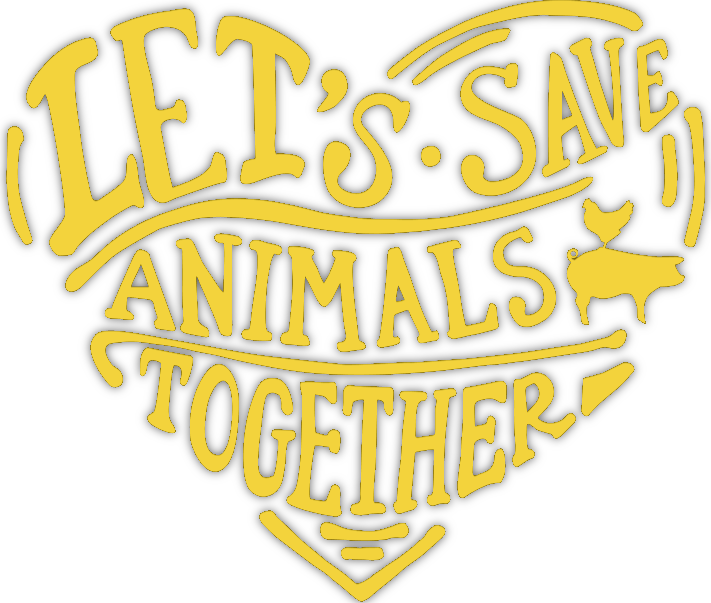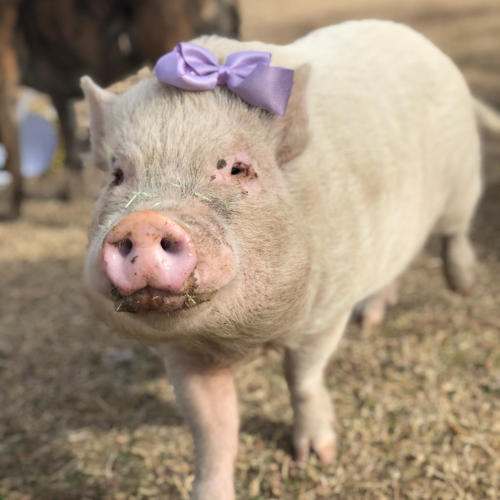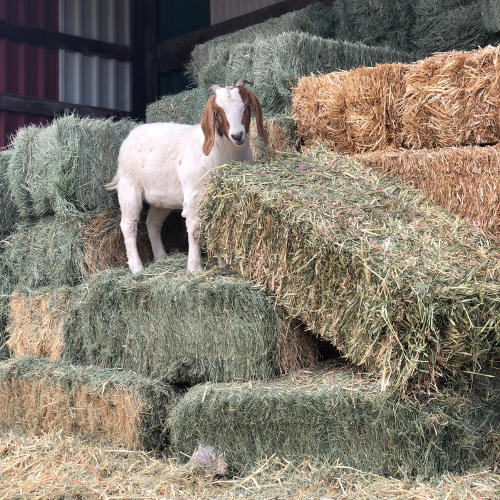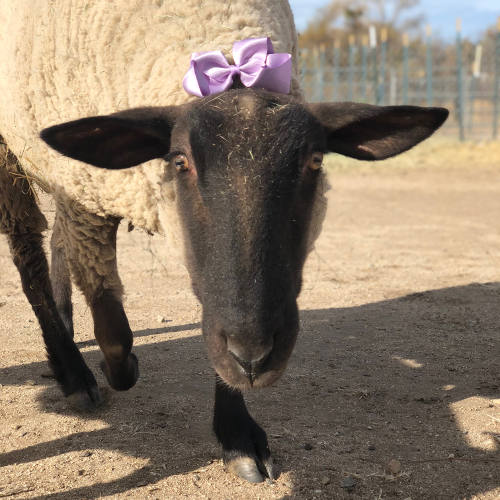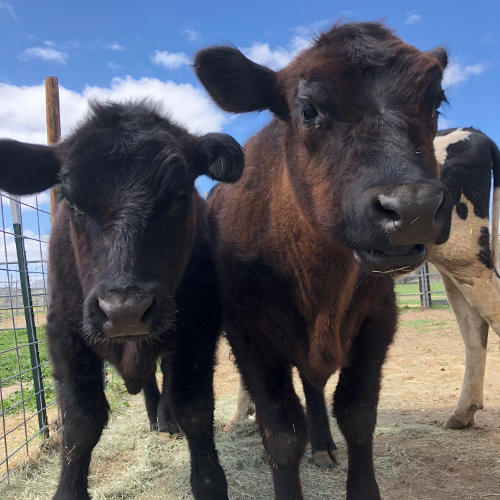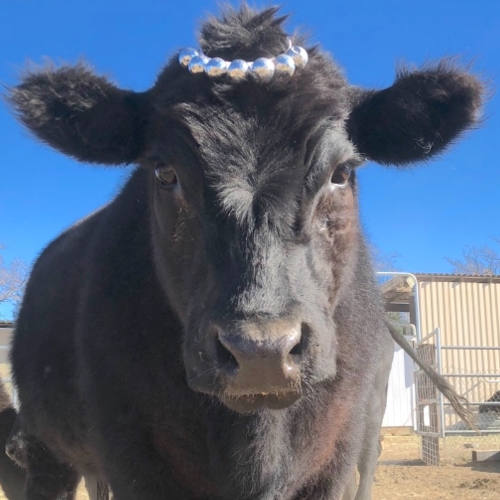Despite all of the precious faces you will find at the refuge, some may still ask “Why should I live a plant based lifestyle?” The answer is quite simple. There is absolutely no negative impact; only a tremendously positive impact on not only the lives of countless helpless animals, but also for your health and the environment as well.
FOR YOUR HEALTH…
Q. Where do you get your protein?
While nutritionists can go back and forth as to the best means to obtain your proper protein intake. The answer does not involve complicated scientific studies, chemistry, or any information beyond common sense. When asked this question by a meat eater, my response is simple: Where does YOUR protein get it’s protein? People obtain protein by ingesting meat from animals. Conversely, those animals get their protein from grass and grains. This begs the question, if you could go directly to the source, why wouldn’t you? Spinach is 51% protein. Per calorie, broccoli has more protein than beef. Lentils, almonds, and chicpeas are also great sources.
While high protein – low carb diets seem to be the craze these days, did you know that the recommended dietary allowance (RDA) for protein is 0.8 grams of protein per kilogram of body weight? To determine this number for yourself, you can take your body weight and multiply it by 0.36. So lets say you are a 120 pound woman, your recommended daily protein would be 43.2 grams per day to live a healthy lifestyle. Conversely for a 200 pound man, 72 grams would constitute as sufficient. In the recent National Health and Nutrition Survey, however, it was found that the average american male consumes 102 grams or protein daily and the average female still consumes 70 grams.
Q. Is plant protein as healthy as meat?
The meat industries consumers do not realize the detrimental effects such products have on their bodies. Did you know that recent studies have proven that vegetarians are 40% less likely than meat eaters to develop some form of cancer in their lifetime? How about that meat eaters have a 50% likelihood of developing heart disease while vegetarians lower their chances to 45% and vegans just 4%? Meat is not the only cause of these devastating blows to your health. No animal product or bi-product has been proven healthy for the human body in any form. Even eating one egg per day produces the equivalent of smoking 5 cigarettes per day for your life expectancy.
Q. What plant based foods have protein?
So you may wonder, if I cannot get protein from meat and animal products, how do I get it? When you compare 4 oz of ground beef to 4 oz of black beans, both contain 24 grams of protein. The beef however, is 320 calories, high in acidity, cholesterol, and saturated fat, while harvesting 0 grams of fiber. The beans however, are much lower in acidity, contain no cholesterol, no saturated fat, and 9 grams of fiber! It’s not just the legume family either. Vegetables themselves contain protein free of of chemicals, hormones, and cruelty. If you were to consume 100 calories of broccoli, you would be consuming 11.1 grams of protein! On the other hand, the same caloric intake of a helping of beef would provide you with an underwhelming 6.4 grams of protein. Nearly every vegetable contains protein. By merely throwing a handful of spinach (about a cup) into a morning smoothie you could ingest 5 grams of protein. Make the switch, your body will thank you!
FOR THE ANIMALS…
Q. How many animals are effected by our dietary habits?
Every second, approximately 255 animals were slaughtered for food in the United States. Even more shockingly, this includes land animals only. When you include sea animals in this statistic, this number jumps to a mind blowing 1,740 animals per second just in the USA. Going vegan saves 198 animals per year.
Q. So why do people eat meat?
Most, if not all Americans, were raised to think that farm animals were meant for food. No one thinks twice about their slaughter or living conditions because from a young age all of us are taught that dogs and cats are adorable pets and farm animals are food. No one stops to ask themselves why is it okay for some species to endure such a horrific life and other species to act as our companions, thus perpetuating the vicious cycle of the meat industry and factory farming.
Q. Do farm animals have the mental capacity to understand trauma?
Here are some facts you may not know about the animals that end up on countless plates across the US for nearly every meal. Recent studies have found that pigs are not only more intelligent than dogs, and can solve problems to the likes of chimpanzees, but actually prove via I.Q. Testing to be more intelligent than human toddlers. Yes, that’s right, a pig is smarter than your 3 year old child.
It is not just pigs who are fully and painfully aware of their cruel surroundings, but cows as well. Further studies have shown that cows are very intellectual and emotionally complex creatures and not just the steak on your plate or in-n-out burger. Cows have astounding memories and have the ability to remember faces of people and other animals even after long periods of time have passed. Cows have been proven to have stronger emotional attachments to certain cows within their herds, essentially best friends. Just as if you were separated from your best friend, cows demonstrate stress when separated from those cows they are specifically connected to.
Q. Whats wrong with dairy? Don’t cows just make milk?
A very common misconception of dairy farming is that cows can perpetually produce milk. Just like human women, this is not the case. A cow must be impregnated and give birth to do so. This is done artificially by the farmer or by constant forced raped by bulls. Milk machines and confinement then aid in perpetual lactation until they can no longer repeat the cycle. This is typically around 4 to 5 years of age. When they are no longer of use, they are slaughtered. Naturally, cows can live 20 to 25 years.
Even if you do not eat beef, the dairy industry is just as taxing and torturous on these astute animals. Mother cows carry their young for 279 to 287 days which is give or take a week longer than the typical 9 months human babies are in gestation. Just like human mothers, cow’s have an incredibly strong attachment to their babies. Calves are taken from their mothers typically within 2 days after their birth. It has been reported that mother cows can be heard screaming and bellowing for numerous hours to days after they are stripped of their babies. Females calves suffer the same fate as their mothers which is perpetual impregnation, milking machines, and having their own babies ripped away from them until their reproductive organs no longer function, while males are considered are useless to a dairy farmer and stuck in veal crates or sold for beef. All of this so that humans can drink THEIR milk and milk products, which is pretty insane to think about. We are THE sole species that drinks another species milk.
Q. What is I buy products labeled “humane,” “organic” or “cage free”?
These labels are not actually regulated. Here is quick snapshot of other farm animals who suffer the same fate: Pigs on average are slaughtered at 5-6 months old depending on what meat they will be used for when they can actually live 10 to 15 years. Chickens (male in the egg industry) are slaughtered at one day old though they have a lifespan up to 8 years. Veal calves are kept in crates for 1 to 24 weeks until their slaughter though they can live up to 20 -25 years. Chickens (meat breeds) are slaughtered at 5 to 7 weeks though they can live up to 8 years. Goats on meat farms are butchered at 12-20 weeks despite the fact they can live up to 12 to 14 years. Turkeys are killed at 4 to 5 months though they could live up to 15 years. Lambs are slaughtered at 6 to 8 months though their lifespan can be 12 to 14 years. Beef cattle are slaughtered at 18 months though they can live 20 to 25 years. Egg laying chickens are also killed at 18 months though they can live up to 8 years. Breeding pigs face slaughter at 3 to 5 years despite their 10 to 15 year life span. Additionally, most chicken and turkeys are are bred to grow so quickly for maximum consumption that their bodies cannot endure for very long even at a sanctuary.
No being alive would want their lives cut so short. These animals want to live and do not deserve to live out such torturous short for one meal.
Q. Are farm animals like dogs and cats?
To put things into perspective, let’s think about the animals of Farm Animal Refuge. Rudy, Thor, and Firecracker, just a few of the friendly piggy faces you will meet at the refuge, sit for treats, just as puppies would. Grace and India play ball in the pasture and get noticeably upset if ever separate, even just for a bath. All of the animals have emotional connections to their other animal friends, caretakers, and friendly faces. If you cannot imagine your mother, or even dog or cat being subjected to the lives farm animals live, then you are already making steps towards going vegan. Going vegan for even just one year can save 198 others just like all of the precious souls at Farm Animal Refuge.
FOR THE ENVIRONMENT…
Q. Can a plant based diet save water?
Farm Animal Refuge is located in California, which unlike many cities in the US experiences droughts. When going through or a drought, or any time for that matter, it is crucial to save water. Many resort to shorter showers, regulated times to turn on your sprinklers and washing your cars, or not using their dishwashers. What if I told you that you save more water by not eating a pound of beef than you did not shower for 6 months?! In fact it takes 1,799 gallons of water to produce just one pound of beef on a factory farm.
Q. Can being plant based help people?
It takes about 13 pounds of grains to produce just one pound of meat also. Recent studies have found that it would take 40 million tons of food to eliminate extreme cases of world hunger, yet the amount of grain fed to factory farm animals each year is 20 times that! Malnutrition currently affects about 870 million people worldwide and accounts for the deaths of more than 2.5 million children under the age of 5 alone every year.
Q. What is happening to our oceans?
To date, an estimated 70% of the world’s fish population is already depleted. Scientists in fact have predicted that overfishing is continuing at such an exponential rate that they predict that all seafood will run out by the year 2050.
Even before we hit an era of potentially completely fishless oceans, another detrimental effect of overfishing is what fisherman and ecologists call “bycatch”. For every 1 pound of seafood caught, 10 pounds of bycatch is accidentally caught in fishing nets. This bycatch includes dead sharks, whales, dolphins, seals, and sea turtles. While this poses a concern for animal lovers for the simple fact that no one wants to think of helpless dolphins, seals, and turtles caught and killed in fishing nets, it poses a much bigger threat. With big predators such as these bycatch often gone or greatly depleted, organisms lower on the oceanic food totem pole grow in abundance, in turn, reducing their own prey; even smaller ocean life. Such a drastically changed and diminished ecosystem leaves us with a simplified marine ecosystem which is prone to collapse.
